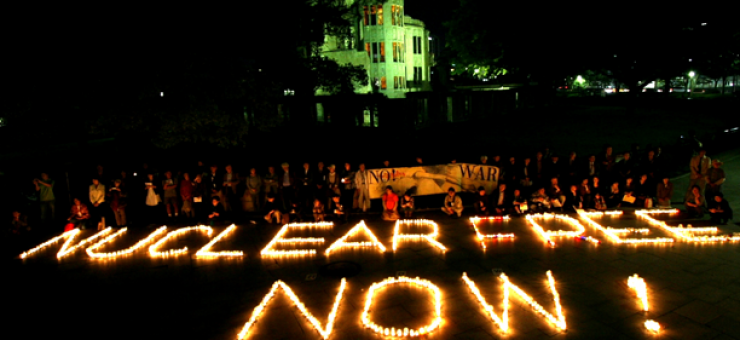UN adopts treaty prohibiting nuclear weapons

The United Nations adopted a global treaty banning nuclear weapons last Friday. Led by Austria, Brazil, Mexico, South Africa and New Zealand, the pact was drafted by 141 countries and passed by a vote of 122-to-1.
Even though the world’s nuclear powers boycotted the process, the treaty makes significant progress towards a more peaceful world. It strengthens the legal and moral case to eliminate these catastrophic weapons and will likely increase pressure on nuclear states to expedite disarmament.
Treaties banning biological weapons and land mines show how arms once regarded as acceptable are now widely, if not universally, reviled. That is the outcome sought by proponents of the nuclear ban pact.
UNI Global Union has been active in calling for nuclear disarmament and peace—a fundamental requirement for human rights—and is a member of the International Campaign to Abolish Nuclear Weapons. The workers’ rights organization held its 2010 World Conference in Nagasaki, where focused on disarmament, and it has a longstanding relationship with the Nagasaki Peace Messengers.
In a statement to the UN conference negotiating the treaty, General Secretary Jennings said:
The catastrophic consequences of nuclear weapons transcend national borders, pose grave implications for human survival, the environment, socioeconomic development, the global economy, food security and for the health of future generations, and the disproportionate impact of ionizing radiation on maternal health and on girls. . . UNI Global Union urges all governments to take part at the negotiations and to sign the Treaty.
Riener Braun, Co-President of the International Peace Bureau, said:
A historical document is adopted and supported by more than 130 states: the treaty prohibiting nuclear weapons. It is a result of intensive and constructive negotiations at the United Nations in New York, and the treaty would not exist without the efforts of the global anti-nuclear weapons movement. It was and still is today a major driver for the abolition of nuclear weapons.
To this day, the treaty does not abolish the weapon and the destructive nuclear weapons’ states with their allies have been hindering a world without nuclear weapons. Their isolation is obvious and impressive and their moral bankruptcy is visible to the world.
The ban treaty has created a new international climate, new norms and a new and unique coalition between governments and international peace movements now stronger to build the further steps towards a nuclear weapon free world.
The ban treaty is a document of hope, a symbol and the best proof that we can succeed in building a nuclear weapon free world together. The vast majority of states does not want to continue to live under the nuclear sword of Damocles and are ready to take action. This is a great step to take!
The ban treaty will only become an encompassing reality if we manifold activities of the peace movements worldwide.
The treaty will be open for signatures as of Sept. 20 and go into effect when 50 countries have ratified it.

